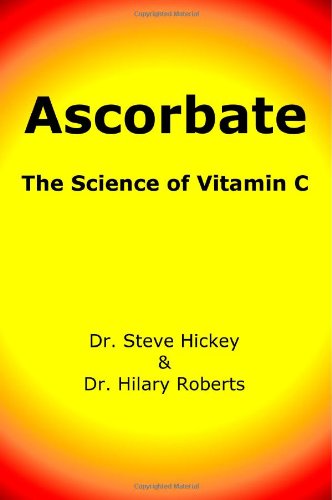Ascorbate: The Science of Vitamin C epub
Par rice brent le vendredi, juin 17 2016, 08:51 - Lien permanent
Ascorbate: The Science of Vitamin C by Steve Hickey Hilary Roberts


Ascorbate: The Science of Vitamin C ebook
Ascorbate: The Science of Vitamin C Steve Hickey Hilary Roberts ebook
Format: pdf
Publisher:
Page: 264
ISBN: 1411607244, 9781411607248
Since then, several research articles have been published exploring the role of ascorbate in cancer therapy. The science of vitamin C – The evidence of its beneficial effects on health is undeniable by PF Louis. Indeed, NF-κB transcribes pro-apoptotic genes such as p53. In accordance with other scientific reports and our present data suggest that activation of NF-κB is linked to cell death signaling in Jurkat and K562 cells [16]. Accordingly, the use of vitamin K3 (VK3, also known as menadione [3]) and vitamin C (VC, also known as sodium ascorbate [4]) alone or in combination (VK3: VC [5]) is highly promising in cancer treatment. Read the book Ascorbate: The Science of Vitamin C by Dr. That's a long time for a thought process to be fermenting in the minds of scientists. Like calcium, magnesium, or zinc or potassium ascorbate. They forgot to add a metal element to bond within vitamin C to be less aggressive form of vitamin C and more apsorbable. Book Feature :: Ascorbate: The Science of Vitamin C. (NaturalNews) Among all supplemental vitamins, vitamin C may be the most controversial. Yet, the precise pathway(s) by which VK3 and/or VC induce .. Findings show a modest vitamin C dose for eight weeks did not lower urate levels to a clinically significant degree in gout patients, but did increase ascorbate. Among the plethora of literature discussing the relationship between vitamin C .. In their recent book Ascorbate: The Science of Vitamin C, pharmacology professors Steve Hickey and Hilary Roberts describe the background science needed to understand the controversy. As early as in 1949, vitamin C was implicated in cancer therapy. Vitamin C (L-ascorbate) is a very powerful nutrient and the premier water-soluble antioxidant. In 1949, Pauling and his colleagues published a paper in Science that announced the discovery of the cause of sickle-cell anemia, the first disease to be described as a molecular disease. Steve Hickey & Hilary Roberts http://www.amazon.co09446790&sr=1-1. A mere 200 milligrams of vitamin C probably ain't gonna do much.